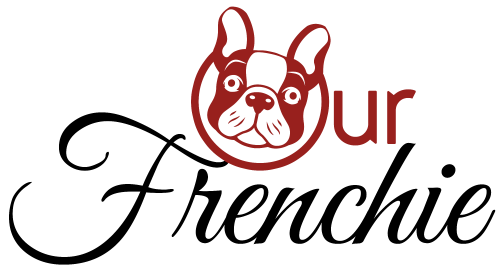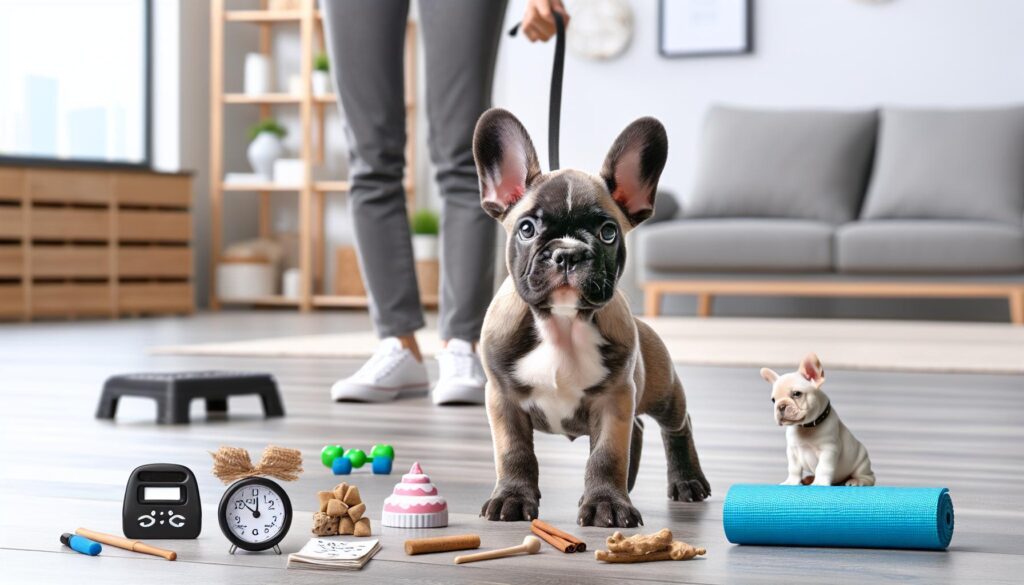About
The Best Age to Start Training a French Bulldog Puppy
Page Contents
Training a French Bulldog puppy is an exciting yet crucial journey that sets the foundation for a well-behaved and happy companion. Known for their playful and affectionate nature, French Bulldogs can benefit immensely from early training. But when is the best time to start? This article delves into the optimal age to begin training your French Bulldog puppy,offering insights into the developmental stages that influence learning and behavior. Whether you’re a first-time owner or a seasoned dog lover, understanding the right time to start training can make all the difference in nurturing a well-adjusted pet.
Understanding Puppy Development Stages
When embarking on the journey of training a French Bulldog puppy, it’s crucial to have a grasp of their developmental stages. This understanding will guide you in tailoring your training methods to suit their evolving needs and capabilities. Puppies, like humans, go through distinct phases of growth, each characterized by unique behavioral and physical changes.
**Neonatal Stage (0-2 weeks):** During this initial phase, puppies are entirely dependent on their mother. Their senses are just beginning to develop, and they spend most of their time sleeping and eating. Training at this stage is not applicable, but ensuring a nurturing habitat is key.
**Transitional Stage (2-4 weeks):** Puppies begin to open their eyes and ears, becoming more aware of their surroundings. It’s a time of rapid sensory development. While formal training isn’t suitable yet, gentle handling and exposure to mild stimuli can be beneficial.
- Socialization Stage (3-12 weeks): This is a critical period for social development. Puppies are curious and open to new experiences. Introducing them to various people, pets, and environments will lay a strong foundation for future training.
- Juvenile Stage (3-6 months): Your French Bulldog puppy is more independent and energetic. Basic obedience training can begin, focusing on simple commands like “sit,” “stay,” and “come.”
- Adolescent Stage (6-18 months): As they mature, consistency in training becomes crucial. They may test boundaries, so reinforcing positive behaviors and maintaining a routine will help solidify their training.
Understanding these stages allows you to align your training efforts with your puppy’s natural development, ensuring a smoother and more effective training process. By respecting their growth phases, you nurture a well-adjusted and happy French Bulldog.
Socialization: Key to a Well-Behaved Bulldog
socialization is an essential component in raising a well-behaved French Bulldog. The ideal window for socializing your puppy is between 3 and 14 weeks of age, a critical period where they are most receptive to new experiences. During this time,expose your puppy to a variety of environments,people,and other animals. This exposure helps reduce the likelihood of behavioral issues such as anxiety and aggression later in life.
To effectively socialize your French Bulldog, consider the following activities:
- Introduce them to different people, including children and adults of varying ages.
- Expose them to various environments, such as parks, streets, and pet-friendly stores.
- Arrange playdates with other vaccinated puppies and well-behaved adult dogs.
- Acclimate them to different sounds, like vacuum cleaners, doorbells, and traffic.
Remember, the goal is to make each interaction positive.Use treats and praise to reinforce good behavior and encourage curiosity. this proactive approach will not only help your French Bulldog develop into a confident and adaptable adult but also strengthen the bond between you and your furry companion. A well-socialized French Bulldog is more likely to be a happy and well-mannered member of your family.
Training Basics: When to Begin Obedience
Starting obedience training for your French Bulldog puppy at the right age is crucial for their development and helps ensure a well-behaved adult dog. **The ideal age to begin training is between 8 to 12 weeks old.** At this stage, puppies are highly receptive to new experiences and can quickly absorb basic commands. Early training helps establish a strong foundation of trust and communication between you and your pup.
Begin with simple commands such as **sit**, **stay**, and **come**. Puppies have short attention spans, so keep training sessions brief, around 5 to 10 minutes, and always end on a positive note. Consistency and patience are key. Use positive reinforcement techniques like treats, praise, and play to motivate and reward your puppy for good behavior.Avoid harsh discipline, as French Bulldogs are sensitive and respond better to gentle guidance.
- **Socialization**: Introduce your puppy to various environments, people, and other animals to encourage adaptability and reduce fearfulness.
- **House Training**: Establish a regular routine for bathroom breaks to prevent accidents and teach your puppy where it is appropriate to relieve themselves.
- **Leash Training**: Start with short walks around the house or yard to get your puppy accustomed to wearing a leash and collar.
By starting early and focusing on these basics, you’ll set the stage for a well-adjusted and obedient French Bulldog. Remember, every puppy is unique, so tailor your approach to fit their individual needs and personality.
balancing Training with Play and Rest
- Training a French Bulldog puppy requires a harmonious blend of learning, play, and rest. Puppies, like young children, have short attention spans, so it’s crucial to keep training sessions brief and engaging.Aim for **5 to 10-minute sessions** multiple times a day to reinforce commands without overwhelming your pup.
- Incorporating play into training can enhance the learning experience. Use toys and games as rewards to make the process enjoyable.For instance, after a successful ”sit” command, a quick game of fetch can reinforce positive behavior while providing a fun break.
- Rest is equally critically important as it allows puppies to process what they’ve learned. A well-rested pup is more receptive to training. Ensure your French Bulldog gets plenty of sleep, ideally **14 to 18 hours a day**, to support their growth and cognitive development.
Importance of Consistency in Early Training
Consistency is key when it comes to training a French Bulldog puppy. These bright and sometiems stubborn little dogs thrive on routine and clear expectations. By maintaining a consistent approach,you help your puppy understand what behaviors are acceptable and which are not. This consistency not only aids in quicker learning but also builds a strong bond between you and your puppy, fostering trust and security.
Hear are a few tips to ensure consistency in your training:
- Use the same commands: stick to the same words and phrases for specific actions. For example, always use “sit” for sitting down, and avoid variations like “sit down” or “take a seat.”
- regular training sessions: Hold short, daily sessions to reinforce learning. Puppies have short attention spans, so frequent, brief sessions are more effective than sporadic, longer ones.
- Consistent rewards: Always reward desired behavior immediately. Whether it’s a treat, praise, or playtime, consistency in rewards helps your puppy associate good behavior with positive outcomes.
Inconsistency can lead to confusion and frustration for your puppy, delaying the training process. By providing a stable and predictable environment, you set your French Bulldog puppy up for success, making the training experience enjoyable and effective for both of you.
Tailoring techniques to Your Puppy’s Needs
When it comes to training your French Bulldog puppy, personalization is key. Every puppy has its own unique personality and learning pace,so it’s crucial to adapt your methods accordingly. Start by observing your puppy’s behavior and responses to different stimuli. Are they more motivated by treats, praise, or playtime? Understanding their preferences will help you tailor your training techniques to be more effective and enjoyable for both of you.
Consider incorporating a mix of training methods to keep your French Bulldog engaged. **Positive reinforcement** is frequently enough the most effective approach, especially with this breed’s affectionate nature. use a combination of verbal praise, treats, and play to reward desired behaviors. If your puppy seems to lose interest quickly, **short, frequent training sessions** might work best. On the other hand, if they show signs of boredom, try introducing new commands or challenges to maintain their interest.
- **Consistency**: Keep your commands and signals consistent to avoid confusion.
- **Patience**: Some puppies take longer to learn than others; patience is vital.
- **Socialization**: Introduce your puppy to different environments and people to build confidence.
Remember, the goal is to create a positive and supportive learning environment. By tailoring your techniques to your puppy’s needs, you not only make the training process more efficient but also strengthen the bond between you and your furry friend.
In Conclusion
starting training for your French Bulldog puppy at the right age can set the foundation for a well-behaved and happy companion. Early socialization and basic obedience training, ideally beginning around 8 weeks, are crucial for their development. Remember, patience, consistency, and positive reinforcement are key to effective training. By investing time and effort early on, you’ll foster a strong bond and ensure your French Bulldog grows into a well-mannered adult. Embrace this journey with love and dedication, and enjoy the rewarding experience of raising a delightful and loyal friend.

